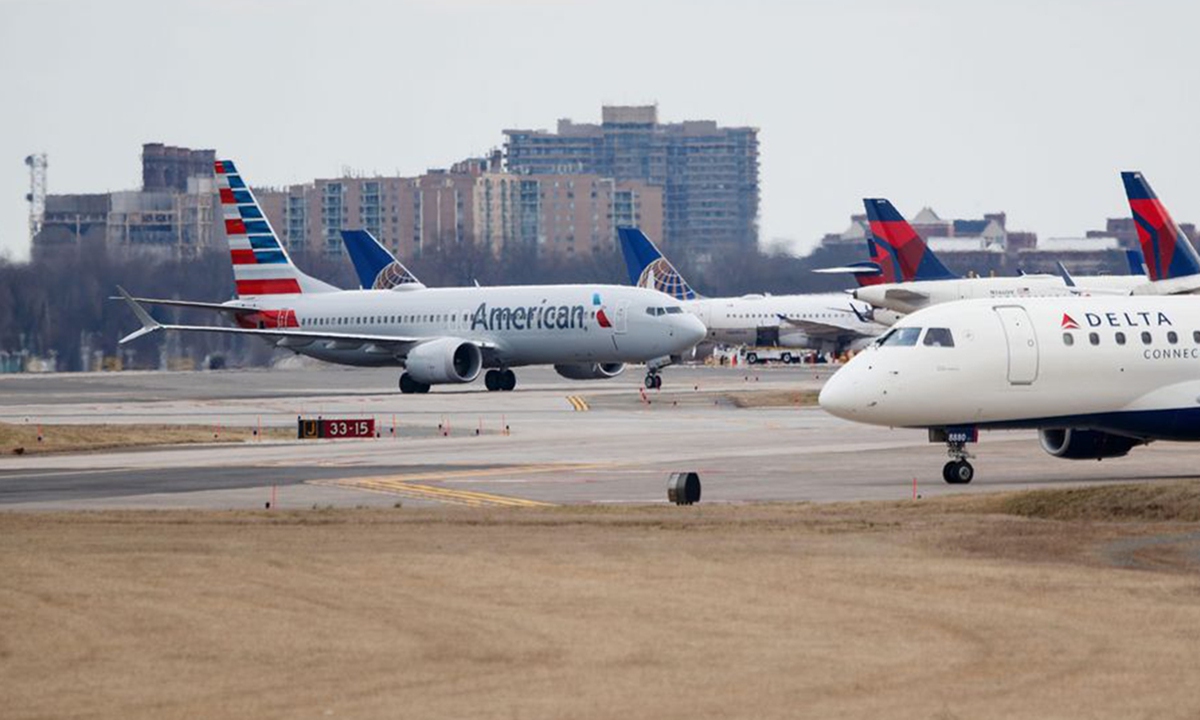Boeing needs to do more to get over 737 MAX malaise
Source: Global Times Published: 2020/9/27 19:23:40

Photo: Xinhua
For the first time in 18 months, there is real hope in sight for Boeing's 737 MAX aircraft to fly again, according to some Western media reports.According to Europe's chief aviation safety regulator, Boeing's 737 MAX may receive regulatory approval to resume test flying in November and could be back in commercial service by the end of the year.
Meanwhile, the controversial aircraft is set to undergo an evaluation flight done by the head of the US Federal Aviation Administration (FAA) in the coming week, a step forward for the US plane manufacturer to win airworthiness approval for the aircraft that has already been grounded for as long as one year and a half, following two fatal crashes.
However, even if European or US authorities grant Boeing airworthiness certificates, the plane manufacturer may still need to do more to win back the public trust in the Chinese market.
To a certain extent, it is of both demonstrative and economic significance for Boeing to win green light for the 737 MAX from relevant Chinese authorities. For starters, China is the first country that made the grounding decision for all 737 MAX fleet at the national level, which makes Chinese safety clearance an inevitable part for Boeing's efforts to get over its 737 MAX crisis.
Secondly, since the global aviation industry has taken a hard hit from the coronavirus pandemic, even if the aircraft gets permission to fly again in Europe and the US, the market outlook for the aircraft is also worrisome. Meanwhile, with the coronavirus outbreak firmly under control, China's civil aviation industry has shown signs of rapid recovery in recent months.
Chinese airlines represent one of the biggest clients of Boeing, so whether the 737 MAX that Boeing used to pin high hopes on could reverse its dire strait will largely depend on its acceptance in the Chinese market.
That may probably justify why the US plane manufacturer is accelerating investment in China in a bid to work its way out of its current predicament. This month saw Boeing announce plans to add a new 737-800BCF conversion line in Guangzhou, South China's Guangdong Province.
From China's point of view, it would be an objective decision based solely on safety judgments whether to grant relevant approval to 737 MAX. Neither Boeing's investment in Guangdong Province, nor US-China tensions will affect the decision to release airworthiness to the aircraft. In this sense, it is Boeing's job to provide sufficient evidence to prove to the Chinese regulators that it has completely fixed all the safety problems with the 737 MAX.
Of course, as the first country to ground the aircraft, China will be very cautious in making the safety approval decision, and the process may be a little bit longer given the impact on market confidence.
Fundamentally speaking, the US plane manufacturer is far more important to American manufacturing industry than it is to China, so whether it can pull itself through the difficult times will be of great significance for American industries and jobs, which directly affect the country's economic fundamentals. If anything, Boeing needs to show all the other US manufacturers that amid the fallout of the coronavirus pandemic, they must also make even greater efforts to retain their global market shares.
Posted in: GT VOICE